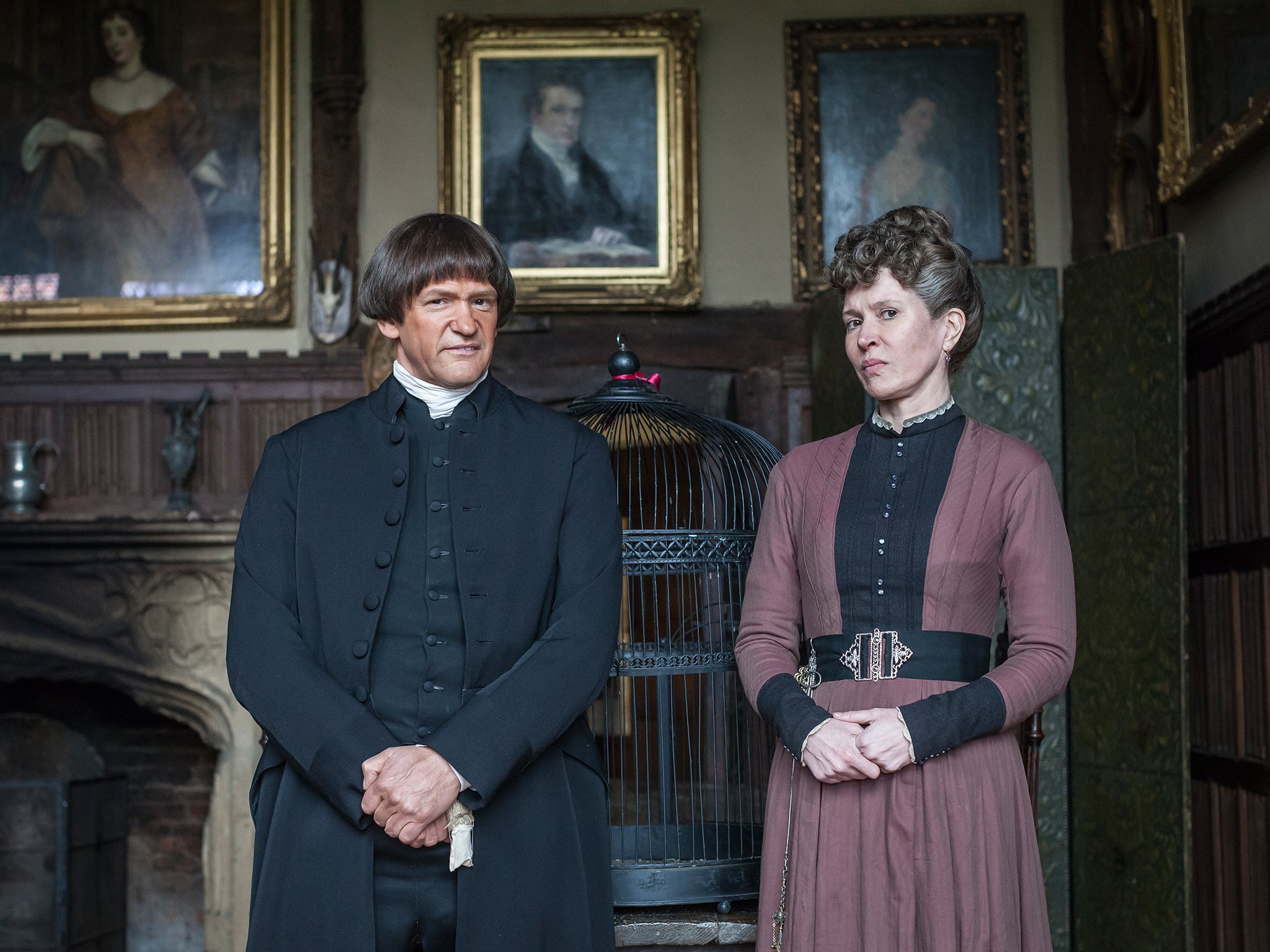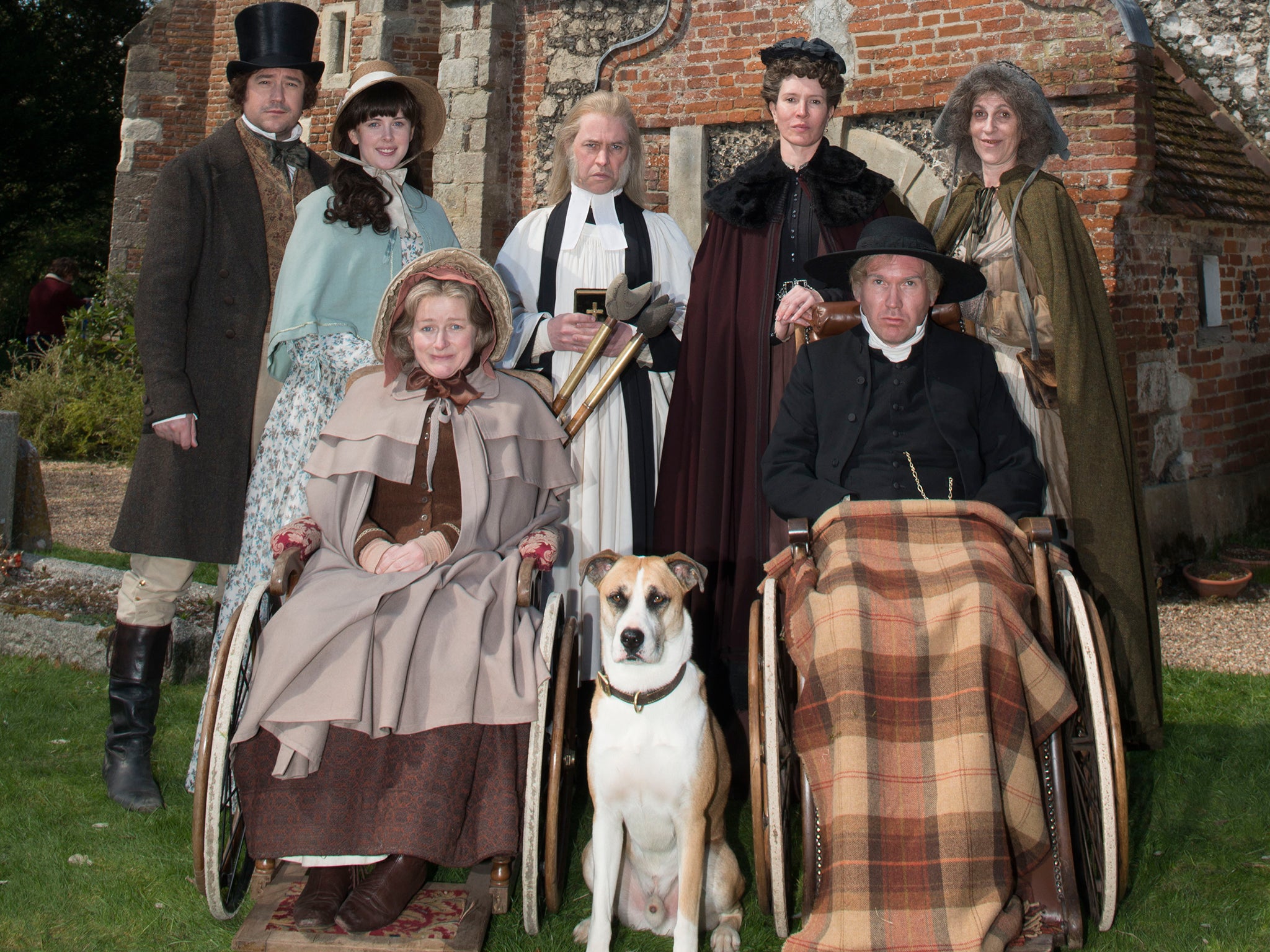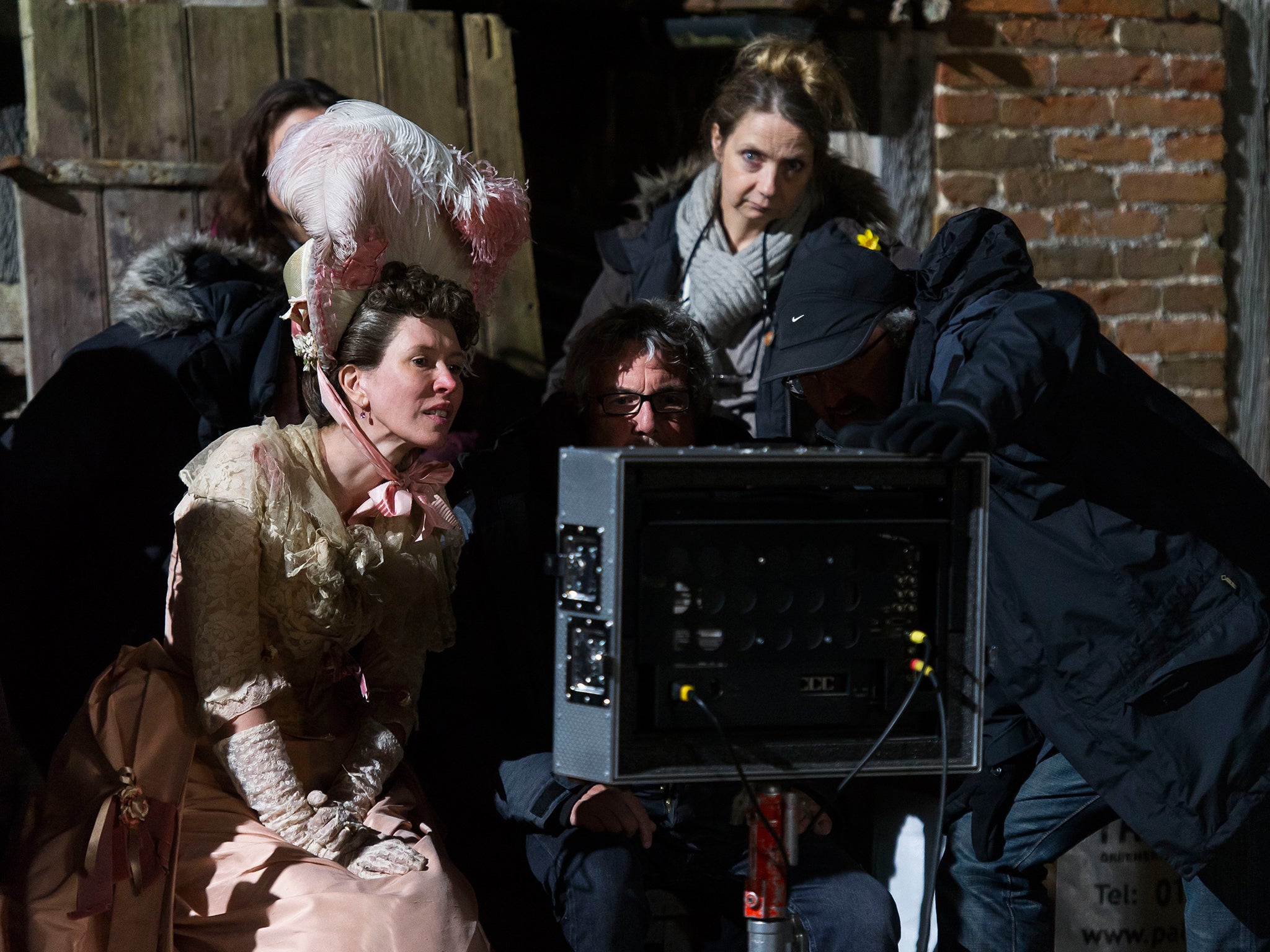Julia Davis interview: Hunderby creator on giving her darkest comic impulses free rein in the Bafta-winning sitcom
The 1830s-set gothic farce won Best Sitcom and Best New Comedy Programme at the 2012 British Comedy Awards

Your support helps us to tell the story
From reproductive rights to climate change to Big Tech, The Independent is on the ground when the story is developing. Whether it's investigating the financials of Elon Musk's pro-Trump PAC or producing our latest documentary, 'The A Word', which shines a light on the American women fighting for reproductive rights, we know how important it is to parse out the facts from the messaging.
At such a critical moment in US history, we need reporters on the ground. Your donation allows us to keep sending journalists to speak to both sides of the story.
The Independent is trusted by Americans across the entire political spectrum. And unlike many other quality news outlets, we choose not to lock Americans out of our reporting and analysis with paywalls. We believe quality journalism should be available to everyone, paid for by those who can afford it.
Your support makes all the difference.The box-set, download-binge TV dramas have so absorbed the limelight in recent years that it seems to have slipped our attention that we’ve been living through something of a golden age in British television comedy. Not the big, broad studio sitcoms like Miranda and Mrs Brown’s Boys, amusing as they can be, but the more niche, observational types such as Getting On, W1A, Rev, The Thick of It and Twenty Twelve.
Reel back to December 2012, when the last three of those above-named sitcoms were nominated for Best Sitcom at the British Comedy Awards – a tough call for judges, you might think, except that it was a fourth contender that took the prize, one totally different in style, a filthy-minded costume romp from Sky Atlantic called Hunderby. It was Jane Austen meets Chris Morris, except it was co-created by Morris’s accomplice on Brass Eye (and a lethally funny comedian in her own right), Julia Davis.
Davis’s 1830s-set gothic farce not only won Best Sitcom and Best New Comedy Programme, but Hunderby went on to earn Davis a writing Bafta in 2013. With such recognition you would think Sky Atlantic would call for an immediate follow-up series, so why has it taken so long?
“They did want us to do more straight away,” says Davis, who co-writes Hunderby with Barunka O’Shaughessy. “But the first series had been such an intense experience I wanted to try out some other ideas for a while.”

If my initial suspicion had been that it was the broadcaster that was dragging its feet over a second series, then that’s because of Davis’s unhappy history with the BBC. After two series of the sublimely tasteless Nighty Night, which Davis wrote and starred in as sociopathic beauty parlour owner, Jill Tyrrell, she co-scripted the ill-fated Lizzie and Sarah with Jessica Hynes (Siobhan Sharpe in Twenty Twelve and W1A).
Despite featuring two of the great female dark stars of British TV comedy, Davis and Hynes’s bleakly funny tale of mistreated fiftysomething wives was put out at 11.45pm, when even insomniacs are beginning to think about calling it a night. And despite some heavyweight Twitter outrage it never went beyond the pilot stage. “It’s just a question of going where you’re wanted,” Davis told me at the time.
For Davis this meant Sky Atlantic, whose largesse has afforded Dorney Court in Buckinghamshire, a Tudor manor house that has made its way into a varied list of movies including A Man for All Seasons, Sliding Doors and Lock, Stock and Two Smoking Barrels.
“I didn’t realise all the productions that had been before,” says Davis, whose Mrs Danvers-like housekeeper Dorothy spent most of the last series coming between her employer, a pastor called Edmund (played by the ever splendid Alex Macqueen) and his new bride, the shipwrecked Helene (the ever-spirited Alexandra Roach from Utopia).
In series one, Davis’s housekeeper wore an eye-patch in homage to Bette Davis in The Anniversary, but in the scene I watch being filmed Dorothy is channelling instead Kathy Bates in Misery, hobbling the bed-ridden Edmund with a wooden mallet. “Tis a new cure from abroad, Sir, to help build up your spindly ankles,” she assures him. “I will do the other side to match.”
Despite it being revealed that Edmund’s tastes run more in the direction of the local lads, Dorothy is still holding out for his hand in marriage. But as Rosie Cavaliero’s character, Hesther, puts it: “He hath no more love for thee than the stools that nestle in his night pot.”
The chief glory of Hunderby is its language, a beautifully filthy cod olde English that blends florid formality with scatology. “It’s a complete creation,” says Davis. “It’s absorbed from lots of different thing... we didn’t do any historic research.”
Where you fall down laughing is in the chasm between the ornate language and what is actually being said, and the deadpan way in which it is uttered. Is it difficult for the actors to keep a straight face? “It’s a pretty giggly set,” admits Rufus Jones, who plays Helene’s handsome beau, Dr Foggerty. “There was one scene that took us all day.”
Apparently the worst offender on the new series is Macqueen, whose character being mostly bedridden, has to listen without expression. “There was one scene,” says Davis, “when I’m changing his nappy and then decide to brush his pubic hair and he was shaking with laughter and I was shaking. I think you can still see it in my eyes later.”
Reece Shearsmith, who plays a new character, a rival parson with designs on Helene, was apparently ultra-competitive when it came to not corpsing on set, but even he eventually succumbed. “When he goes he goes,” says Davis, who seems to have a thing about the clergy, perhaps because both her uncle and grandfather were vicars. “There’s lots in my bloodline... It’s all coming out now,” she says.

She grew up in Somerset and studied English and drama at York University, after which she joined a West Country comedy troupe that included Rob Brydon and Ruth Jones, her future co-stars on Gavin & Stacey, and was noticed by Father Ted creators Graham Linehan and Arthur Mathews. They cast in their seminal sketch show Big Train, where her co-stars included Chris Morris. “I either played very submissive or very dominant women,” she says. “They’re much the most fun to play.”
Steve Coogan then invited Davis and the then unknown Simon Pegg to join his stand-up tour in 1998, after which she was reunited with Brydon for her breakthrough TV show, a series of two-handers called Human Remains. And not only has she worked with some of the big names of the British comedy scene, she is also married to one – The Mighty Boosh’s Julian Barratt, with whom she has two sons.
When not writing comedy whose darkness belies her gentle and rather shy personality, Davis is an actress for hire, most recently playing Enid Blyton, Sylvia Plath and Helen of Troy in Psychobitches. But it’s creating comedic monsters that most exercises her, something she does at a local café in north London because she finds working from home too “isolating”.
A pilot for her new Channel 4 sitcom about a fading daytime TV presenter, Morning Has Broken, has been filmed and she and co-writer Nick Mohammed (Miranda, The Job Lot) are working on scripts for a full series in which David Schwimmer – Ross in Friends – will play an American producer brought in to boost ratings. Meanwhile she’s also writing a new comedy for Sky Atlantic about an adult camping holiday.
As a viewer she’s been enjoying Catastrophe, written and starring her Bad Sugar co-actor Sharon Horgan, as well as Broad City and Girls, two female-led comedies whose frankness make me think that Davis may have simply been ahead of her time with Nighty Night and Lizzie and Sarah.
“Women are perceived to be nurturing and caring and all of those things and so these sort of characters are so opposite to that,” she says. “Happy Valley [BBC1’s award-winning serial killer thriller] was written by Sally Wainwright, and people say, ‘But she’s such a lovely person’, and you go, ‘Yeah, but she’s just writing about something, it doesn’t mean she’s a murderer’.”
Davis also says Larry David and Chris Morris are nothing like the characters they portray, and says her own small-screen monsters are a reaction to her being “self-censoring” in real life. “I don’t think I’d ever be considered a deeply rude human, I hope not,” she says.
The first series of Hunderby has recently screened in America, where fans include Curb Your Enthusiasm producer Robert Weide. “I suddenly got a flurry of people contacting me who’d seen it on Hulu or something like that,” says Rufus Jones. “It took a few years to get over, but there’s a real revivalist interest in British comedy.”
“I wonder what Americans would make of it?” adds Davis. “I wonder because they genuinely love Downton Abbey in a very earnest way. I’m not sure they’d like Hunderby...”
A two-part ‘Hunderby’ special begins on Sky Atlantic on 10 December
Join our commenting forum
Join thought-provoking conversations, follow other Independent readers and see their replies
Comments